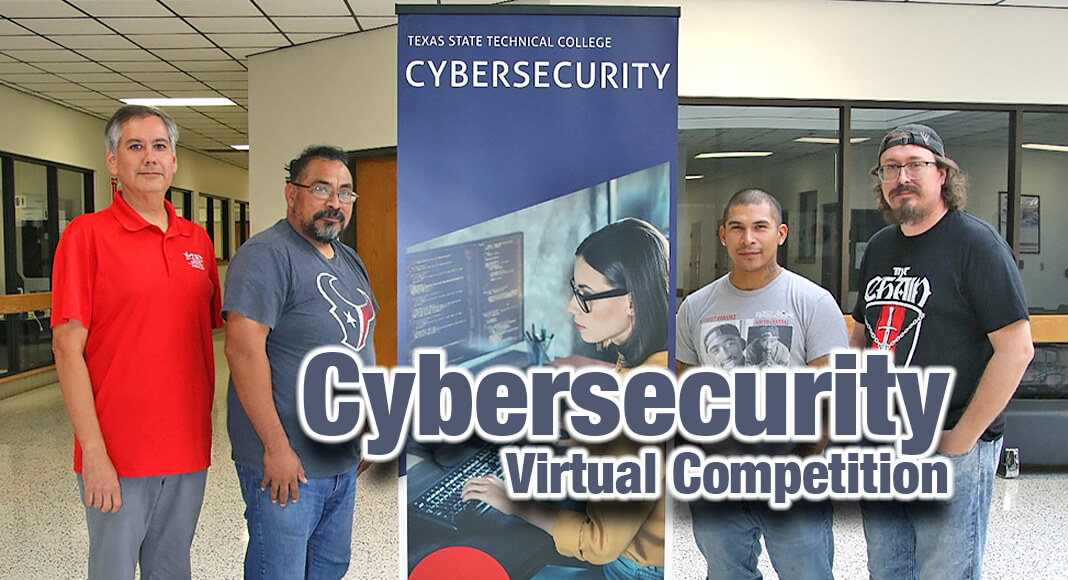
Texas Border Business
HARLINGEN, Texas – Five Texas State Technical College Cybersecurity students will participate in a national competition during Cybersecurity Awareness Month, which is observed during October.
Ricardo de Leon, Cesar Herrera, Brandon Martinez, David Murillo and Anna Reyes will represent TSTC during the National Cyber League (NCL) event. NCL, a virtual training ground that features a competitive process and a supportive community which helps students develop, improve and validate their cybersecurity skills, according to the organization’s website.
“The students practice on their own while I do provide guidance,” said Alejandro Alcoser, a TSTC Cybersecurity instructor. “Throughout the practice, individual and team competitions, students can find out which areas they’re proficient and are shaky. It gives students the credibility to show potential employers the areas they specialize in.”
De Leon, of Harlingen, said he chose to compete in order to acquire additional skills.
“I’m learning more in-depth aspects of situations I’ll encounter that we’re not introduced to in class,” he said. “To get prepared, Alcoser is providing us with a history, background and how to find tools, software and applications that are used to break codes and sort through a log analysis.”
Herrera, of Harlingen, said his goal is to learn resources that will prepare him for his career.
“Getting an education in Cybersecurity and training for the competition is showing how much there is to learn about information technology,” he said.
Franz Payer, chief executive officer for Cyber Skyline, said his company aims to get students excited for a cybersecurity career by providing them with the same challenges that professionals face.
“Students are provided with a safe environment where they can apply their classroom knowledge to accomplish practical tasks, such as tracking down hackers by looking at forensic evidence,” Payer said of the NCL competition. “We also connect students with internship and entry-level jobs with companies such as CrowdStrike, Mastercard and Cipher Tech.”
The NCL competition is made up of nine categories, which are open source intelligence, cryptography, password cracking, log analysis, network traffic analysis, forensics, web application exploitation, scanning and enumeration and exploitation.
The practice game is scheduled for Oct. 9-15, followed by the individual game scheduled for Oct. 20-22, and a team game scheduled for Nov. 3-5, each at TSTC’s Harlingen campus.
TSTC offers online training for its Cybersecurity program. Students can choose to pursue an Associate of Applied Science degree in Cybersecurity, certificates of completion in Cybersecurity or an advanced technical certificate in Digital Forensics Specialist.
Cybersecurity is one of TSTC’s performance-based education (PBE) programs. In PBE, students work with coaches to develop schedules in two-hour time blocks. Lectures, videos and other learning content is on Canvas, a learning management system. Instructors also do mini-lectures throughout the day as needed. Tests can be written, demonstration-based or online. Some students with professional experience can test out of some lessons.
In Texas, digital forensics analysts can earn an average annual salary of $83,340, according to onetonline.org. The website stated that the number of analysts in Texas was forecast to grow by 20% between 2020 and 2030.
For more information about TSTC, visit tstc.edu.















